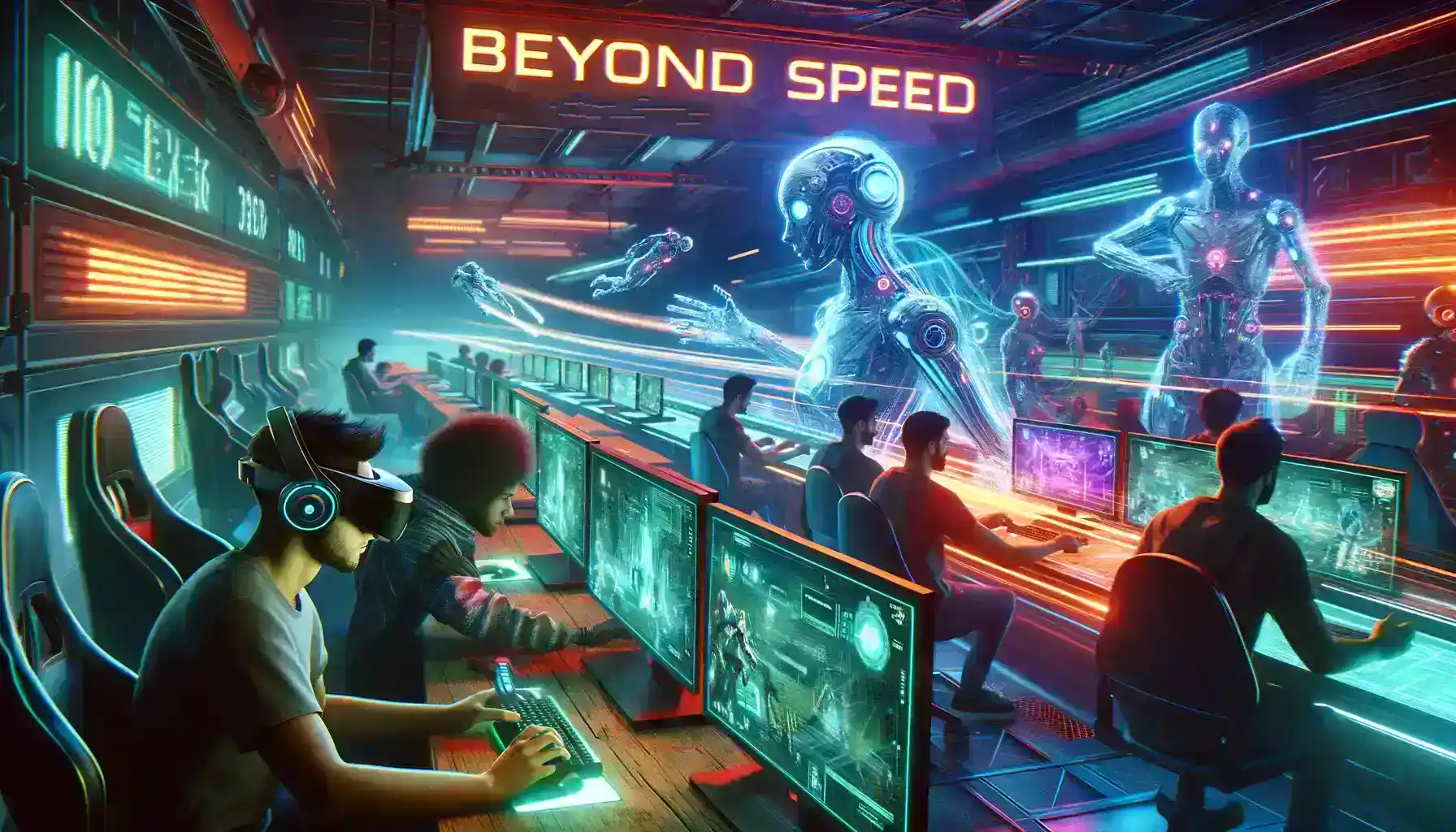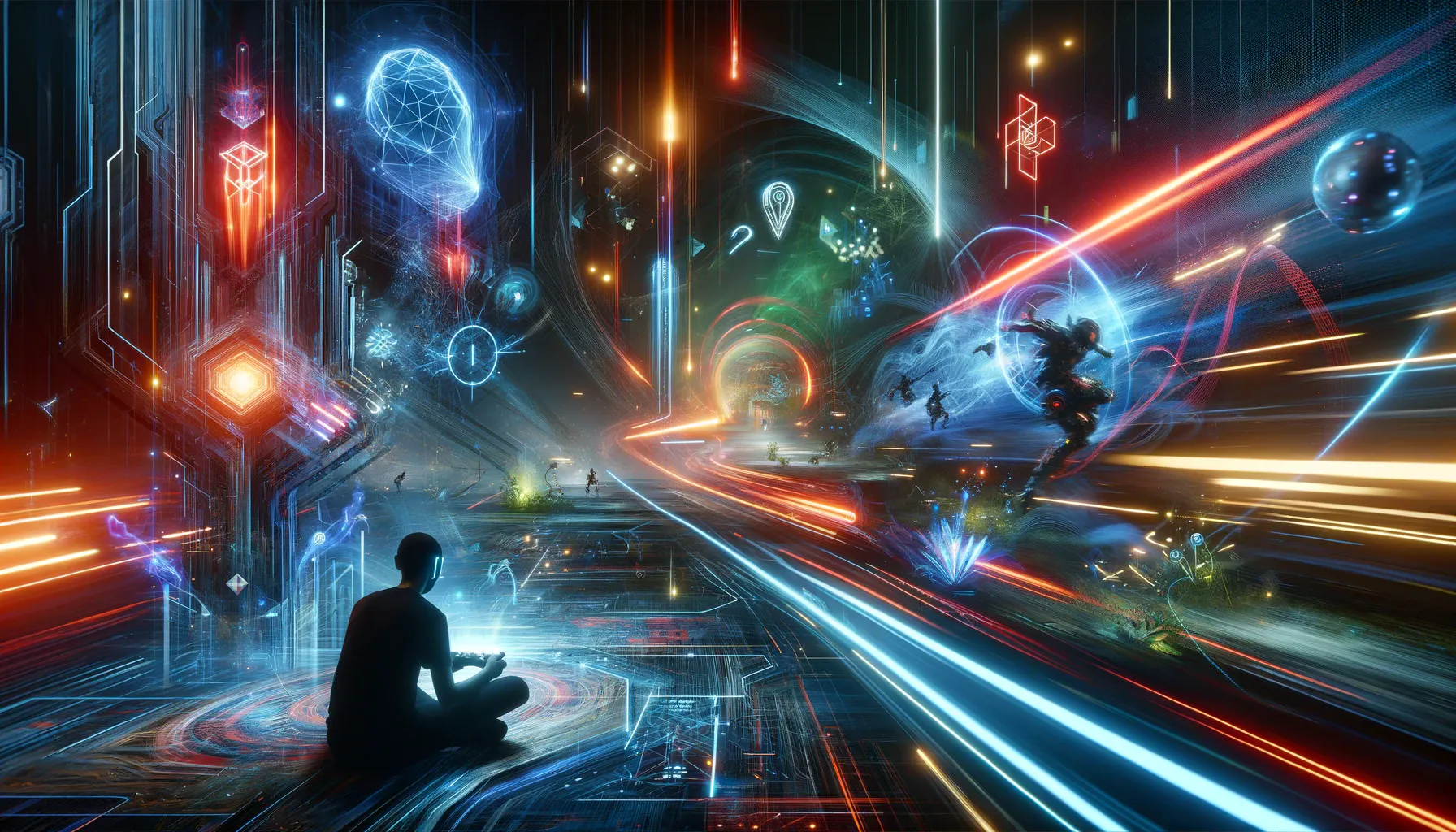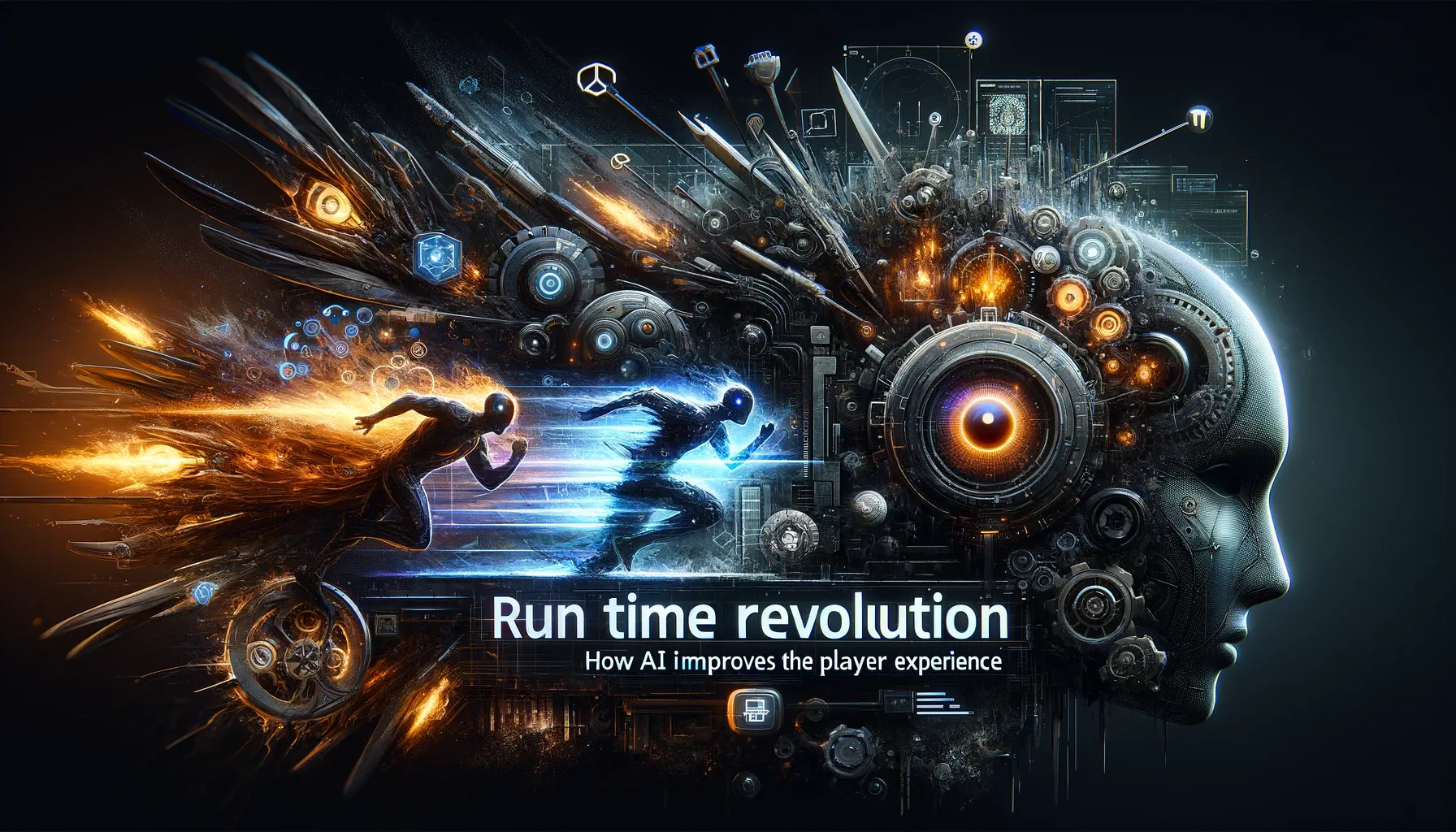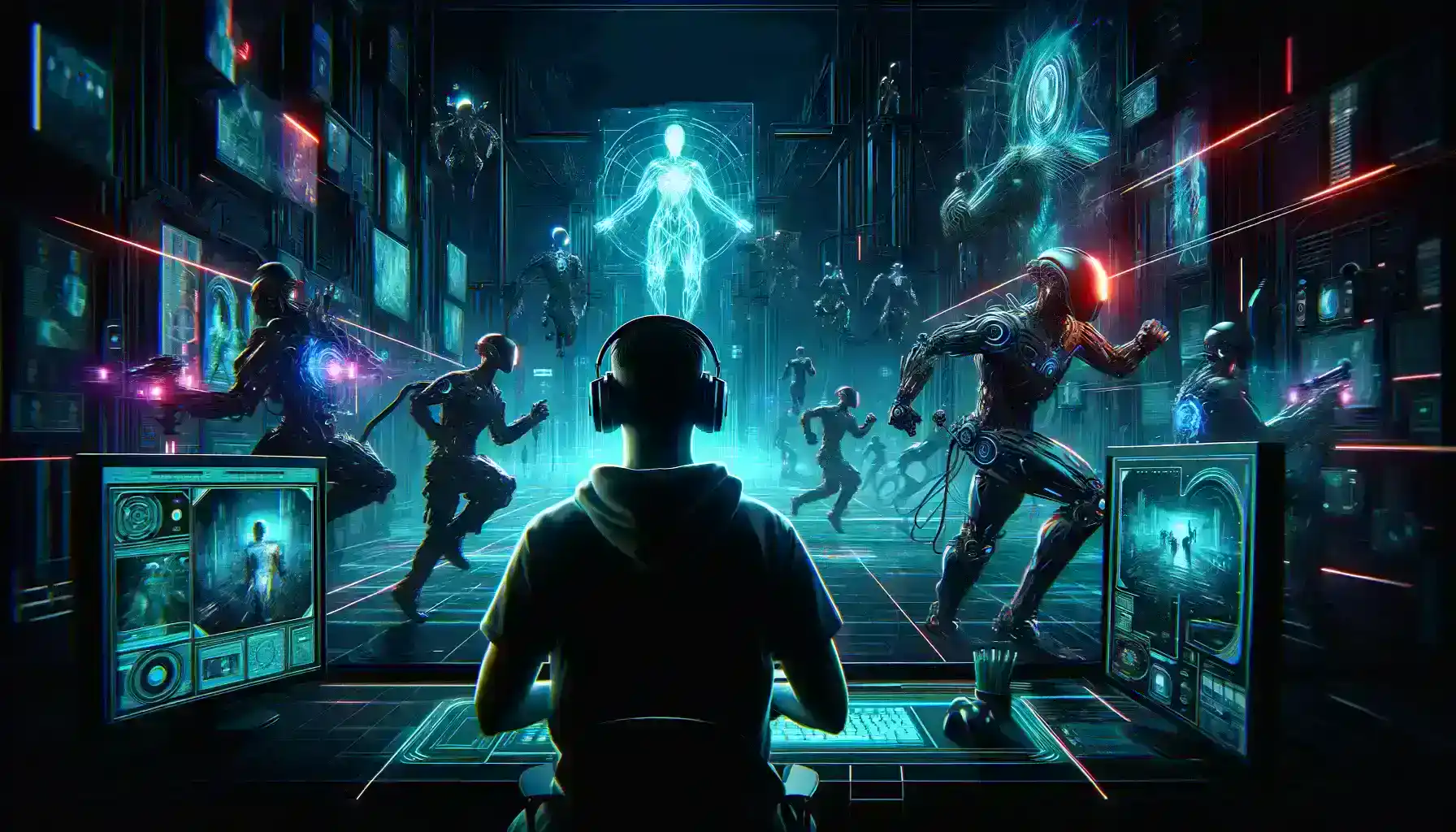Table of Contents
In the ever-evolving landscape of the gaming industry, player experience enhancement has become a paramount focus for game developers and publishers. As technology continues to advance, the integration of Artificial Intelligence (AI) has opened up new horizons in the realm of gaming. AI-powered game boosters are revolutionizing the way players engage with their favorite titles, offering improved immersion, personalization, and overall satisfaction. In this article, we will explore five powerful AI game boosters that are reshaping the player experience, and we’ll provide illustrations of companies leading the charge in this exciting field.
Realistic In-Game NPCs
Non-player characters (NPCs) have evolved significantly from their scripted and predictable origins, resulting in a notable enhancement of the player experience. One exemplary company in this field is CD Projekt Red, renowned for their work on “The Witcher” series and “Cyberpunk 2077.”
CD Projekt Red’s dedication to Player Experience Enhancement through AI-driven NPC development has yielded impressive results. Their game engine incorporates advanced AI algorithms that infuse an unparalleled level of sophistication into the virtual worlds they craft. These AI-driven NPCs showcase remarkably realistic behaviors, significantly enhancing the player’s immersion in the game.

Player Experience Enhancement is a central focus for CD Projekt Red, and they achieve this by implementing dynamic NPC interactions within their games. Regardless of whether a player makes a decision in a dialogue tree or faces a moral dilemma, NPCs in the game world react dynamically to these choices. This high level of responsiveness not only makes the game world feel more alive but also adds an element of unpredictability. As a result, players are drawn deeper into the game, forging a stronger connection and ultimately enhancing their overall player experience.
Moreover, CD Projekt Red’s AI-driven NPCs possess the ability to remember past interactions with the player. This means that choices made earlier in the game can have lasting consequences, adding depth and authenticity to the virtual world. Players can witness the impact of their decisions, which further enriches their gaming experience.
Perhaps the most significant player experience enhancement is the NPCs’ capacity to evolve their responses over time. They can learn from the player’s behavior and adjust their attitudes and reactions accordingly. This learning process contributes to the creation of a more immersive and dynamic gaming experience, where the player’s actions truly matter.
Personalized Gameplay
Player Experience Enhancement in the gaming industry has been significantly transformed by AI technology. AI enables the analysis of a player’s style, preferences, and skill level, allowing for personalized gaming experiences. This personalization extends beyond just modifying difficulty levels; it includes suggesting in-game challenges, recommending items and strategies, and ultimately elevating player engagement and satisfaction. AI’s ability to adapt and tailor the gaming experience has revolutionized how players interact with and enjoy their favorite games.
One prime instance of a company leveraging AI for Player Experience Enhancement is Electronic Arts (EA), a prominent player in the gaming industry. EA has successfully implemented AI-driven personalized gameplay features in popular titles like “FIFA” and “Madden NFL.”

Player Experience Enhancement in these games involves the use of EA’s AI algorithms to thoroughly examine player behavior. This analysis considers various factors like preferred teams, play styles, and past gaming patterns. The primary objective is to provide players with personalized recommendations and challenges. As a result, players establish a stronger connection with the game and are more inclined to spend extended periods immersed in it. This approach ultimately leads to an enriched and more engaging player experience.
By tailoring the gaming experience to individual players, EA not only keeps players engaged but also encourages them to invest more time and effort into the game. This personalization not only enhances player satisfaction but also contributes to the overall success and longevity of the games in EA’s portfolio. It’s a prime example of how AI can significantly enhance the player experience in the gaming industry.
Dynamic Storytelling
AI has the potential to revolutionize storytelling in video games by creating dynamic narratives that respond to player choices. This approach offers multiple branching storylines, ensuring that each player’s experience is unique. Player Experience Enhancement is at the core of this innovation, as AI-driven narratives adapt in real-time to player decisions, providing a more immersive and personalized gaming journey. This dynamic storytelling not only increases replayability but also deepens player engagement by allowing them to shape the game world and its outcomes based on their choices, ultimately making each gaming experience more memorable and satisfying.
One company that exemplifies this player experience enhancement through AI-driven dynamic storytelling is Quantic Dream. Renowned for their titles like “Heavy Rain” and “Detroit: Become Human,” Quantic Dream excels in this domain. In their games, players are empowered to make critical decisions that significantly influence the narrative direction, leading to a wide range of possible outcomes.
Quantic Dream stands out due to its Player Experience Enhancement through the implementation of AI algorithms. These algorithms meticulously monitor player choices, dynamically altering the narrative. This AI-driven system ensures an immersive and emotionally engaging experience. As players progress, their decisions result in tangible consequences, profoundly shaping the storyline, and delivering a truly personalized and unforgettable gaming adventure.

Enhanced Graphics and Realism
Player Experience Enhancement through AI-powered graphics enhancement techniques has become a fundamental aspect of modern gaming, revolutionizing the way games look and feel. Companies like NVIDIA have been at the forefront of this technological advancement, delivering remarkable improvements in graphics quality and realism.
One prime instance is NVIDIA’s pioneering role in this field. As a prominent player in AI and GPUs, NVIDIA has significantly contributed to the evolution of graphics in gaming. Their Deep Learning Super Sampling (DLSS) technology is a standout innovation. DLSS employs AI algorithms to upscale lower-resolution images, resulting in remarkably detailed and lifelike visuals, even on hardware with limited capabilities. This technology has been harnessed by popular games like “Cyberpunk 2077” and “Control,” elevating the overall player experience by offering breathtakingly immersive graphics.
The integration of AI-driven graphics enhancements has indeed revolutionized the gaming experience, taking it to unprecedented levels. Leading companies such as NVIDIA have been at the forefront of this innovation, constantly pushing the boundaries of what can be achieved. This commitment ensures that players can immerse themselves in visually stunning gaming worlds that remain captivating, even on hardware with certain limitations. Player Experience Enhancement through AI-driven graphics enhancements has become a cornerstone of modern gaming, delivering breathtaking visuals and greater immersion.
Player Experience Enhancement through AI in the Gaming Industry
In recent years, the gaming industry has witnessed a significant transformation, thanks to the integration of artificial intelligence (AI) to enhance player experiences. Companies like CD Projekt Red, Electronic Arts, Quantic Dream, NVIDIA, and Riot Games are at the forefront of this revolution, utilizing AI in various ways to create more immersive and enjoyable gaming experiences.
For instance, CD Projekt Red employs AI to craft realistic non-player characters (NPCs) that react dynamically to player actions, adding depth and authenticity to their games. This innovation enables players to feel more immersed in the game world and engage in meaningful interactions with NPCs.
Electronic Arts, on the other hand, leverages AI to personalize gameplay experiences. By analyzing player data and behavior, they can tailor in-game content and challenges to suit individual preferences, making each gaming session unique and engaging.
Quantic Dream, recognized for its narrative-driven games, leverages AI to elevate the Player Experience Enhancement through dynamic storytelling. AI algorithms play a pivotal role in this process by continuously adapting the game’s narrative in response to player choices. This adaptability ensures that the storyline remains engaging and responsive, catering to the unique decisions made by each player. By integrating AI into their games, Quantic Dream enhances the overall player experience by creating a more personalized and immersive storytelling adventure.

NVIDIA is dedicated to Player Experience Enhancement by leveraging AI-powered technologies to elevate graphics and visual experiences. Their approach involves harnessing AI to achieve unprecedented levels of realism and breathtaking visuals in gaming. This commitment is evident in their continuous efforts to push the boundaries of visual fidelity, ensuring that players enjoy more immersive and stunning gaming environments.
Riot Games, the studio behind “League of Legends,” uses AI to maintain a fair and balanced competitive environment. Machine learning algorithms help identify and address toxic behaviors among players, ensuring a more positive and enjoyable gaming community. Additionally, Riot Games uses AI to continuously balance characters and gameplay mechanics, providing a more satisfying and competitive experience for millions of players worldwide.
In conclusion, AI game boosters have indeed emerged as a pivotal force within the gaming industry, driving innovation and redefining player experiences. These advancements are evident across various aspects of gaming, such as the creation of lifelike non-player characters (NPCs), personalized gameplay, dynamic storytelling, improved graphics, and player behavior analysis. AI’s influence on these facets of gaming is undoubtedly shaping its future.
As technology continues to progress, gamers can look forward to increasingly immersive and tailored experiences. AI’s role in the industry promises to elevate gaming to unprecedented levels. Notably, it’s not just about enhancing the visual and technical aspects of games; it’s also about creating deeper connections between developers and players. AI-powered tools are revolutionizing how developers engage with their player communities and, in turn, are enhancing the overall gaming experience.
In summary, AI’s impact on the gaming industry, with its primary focus on enhancing player experiences, cannot be understated. It is propelling the industry forward and promising a future of more captivating and individualized gaming adventures.